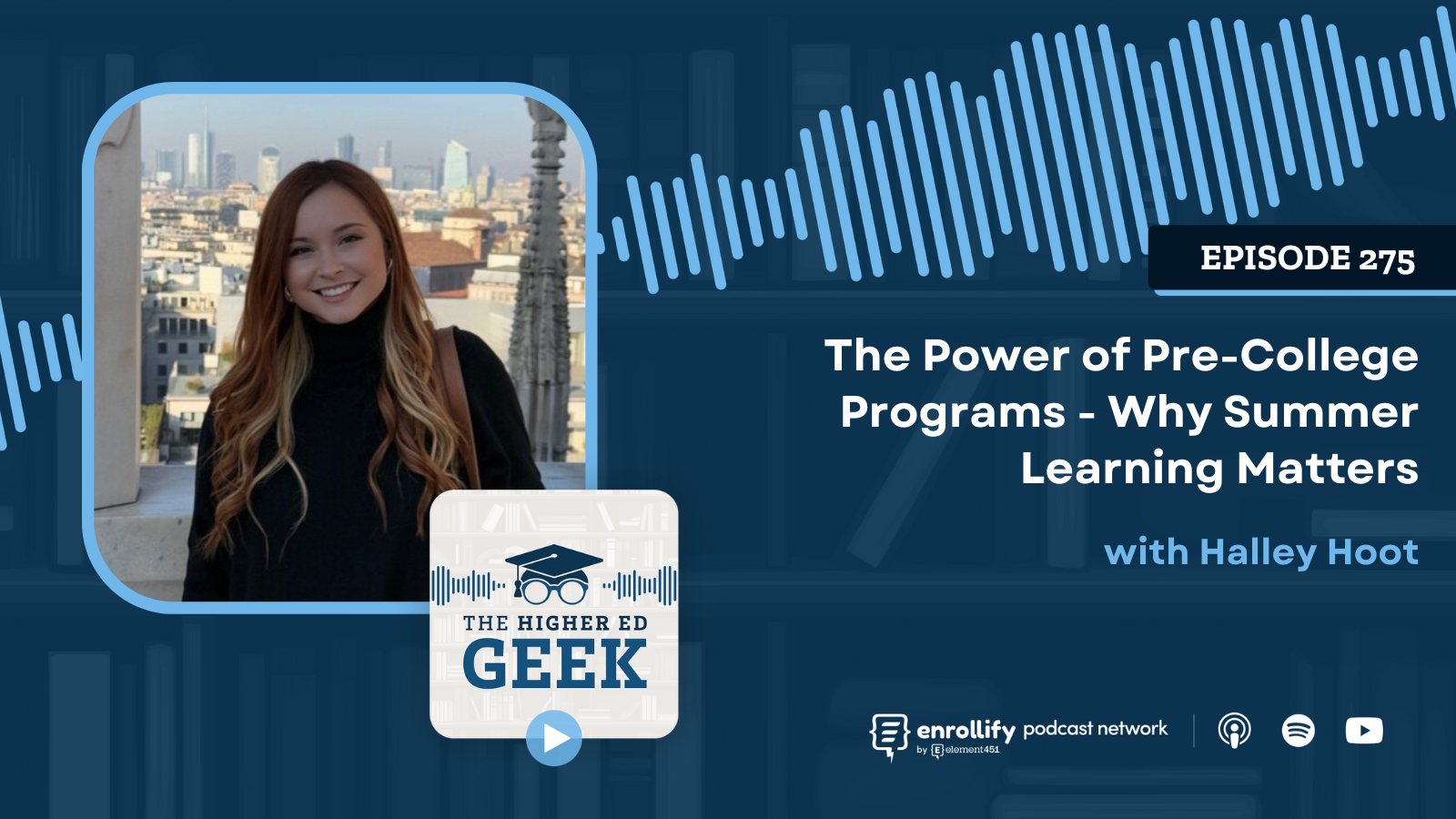About the Episode
About The Episode: John Munsell walks us through his structured prompting model which has been integrated at LSU and shares his thoughts on integrating AI into higher education, how to convince leadership of the importance of AI, and what to do with the compressed time that AI will create.
Christopher Penn’s RACE model for prompting: https://www.trustinsights.ai/insights/instant-insights/instant-insights-trust-insights-race-ai-framework/
Episode prompt:
Getting AI to write in your voice requires training the model on your content. For an institution, the more information you can provide, the better.
You are an expert content copywriter in higher education at [your institution name and url].
I'm going to ask you to create a first draft of [the type of document you want, blog, video script, social post, etc.].
Use the style guide recommendations from [link to your style guide if available], the brand guidelines from [link to your brand standards], and use the following content examples [either upload social posts, video scripts, links to blogs/news articles, etc. the more content you can provide as an example, the better output you will get]
Create a [type of content with length…for example, an 800 word blog or a 30 second TikTok script], please. Take your time.
Key Takeaways
- AI can help universities streamline workflows by teaching scalable prompt engineering to faculty and staff.
- Establishing a shared prompt library can increase efficiency and reduce redundancy across departments.
- AI has the potential to reduce task times significantly, such as compressing a two-week task into just 20 minutes.
- Universities need to adopt AI to keep pace with the rapidly changing landscape of higher education.
- Prompt libraries and prompt stacks, created in platforms like Notion, are critical for AI scalability across different functions.
Episode Summary
How is LSU using AI in higher education?
John Munsell shares how LSU has made AI a core part of their academic and operational strategy, starting with teaching faculty prompt engineering. The university's provost recognized the power of AI and invited John to work with faculty to upskill them in AI tools. The approach taken at LSU is focused on scalable prompt engineering, a method that allows for efficient, repeatable AI processes across departments. This includes the creation of "prompt stacks"—flexible, reusable prompts with hot-swappable variables that ensure consistency across large teams, reducing redundant efforts. LSU is leading the way in showing how AI can be embedded into university curricula and workflows to improve efficiency and innovation.
What makes LSU’s prompt engineering strategy different?
Unlike other institutions where faculty might be learning AI in a more fragmented, self-taught manner, LSU’s approach focuses on scalable and structured prompt engineering. John explains how LSU creates prompt libraries using platforms like Notion, making AI accessible and manageable. These libraries enable faculty and staff to store and share prompts across departments, ensuring everyone works from a common understanding. This scalability is essential, especially when universities aim to upskill large teams or manage turnover efficiently. Additionally, by using modular prompt containers and chains, LSU has found a way to make prompt engineering accessible to people in different academic fields, from legal studies to grant writing.
How can universities adopt AI with resistant leadership?
For institutions where leadership might be hesitant to adopt AI, John suggests framing the conversation around economic benefits. AI can help universities “do more with less,” a critical point as tuition rates fluctuate and higher education faces financial pressure. By compressing tasks that might take weeks into hours or even minutes, AI enables universities to maximize their resources. Munsell also touches on the broader implications of AI, explaining that resistance to AI will only leave institutions lagging behind competitors who adopt these technologies. The future of higher education, in his view, hinges on the effective and ethical implementation of AI.
AI is no longer a "nice-to-have"—it's a necessity for universities looking to remain competitive. Listen to the full episode to explore how AI can transform not just higher education, but also the way institutions think about time, efficiency, and student success.
Connect With Our Host:
Brian Piper
https://www.linkedin.com/in/brianwpiper/
About The Enrollify Podcast Network:
AI for U is a part of the Enrollify Podcast Network. If you like this podcast, chances are you’ll like other Enrollify shows too!
Some of our favorites include Generation AI and Mastering the Next.
Enrollify is produced by Element451 — the next-generation AI student engagement platform helping institutions create meaningful and personalized interactions with students. Learn more at element451.com.
Element451 is hosting the AI Engage Summit on Oct 29 and 30. Register now for this free, virtual event.The future of higher ed is being redefined by the transformative power of AI. The AI Engage Summit brings together higher ed leaders, innovators, and many of your favorite Enrollify creators to explore AI’s impact on student engagement, enrollment marketing, and institutional success.
Experience firsthand how AI is improving content personalization at scale, impacting strategic decision-making, and intuitively automating the mundane tasks that consume our time. The schedule is packed with real examples and case studies, so you leave knowing how to harness AI to drive meaningful change at your institution.
Whether you’re looking to enhance student outcomes, optimize enrollment marketing, or simply stay ahead of the curve, the AI Engage Summit is your gateway to the next level of higher education innovation. Registration is free, save your spot today.













.png)

